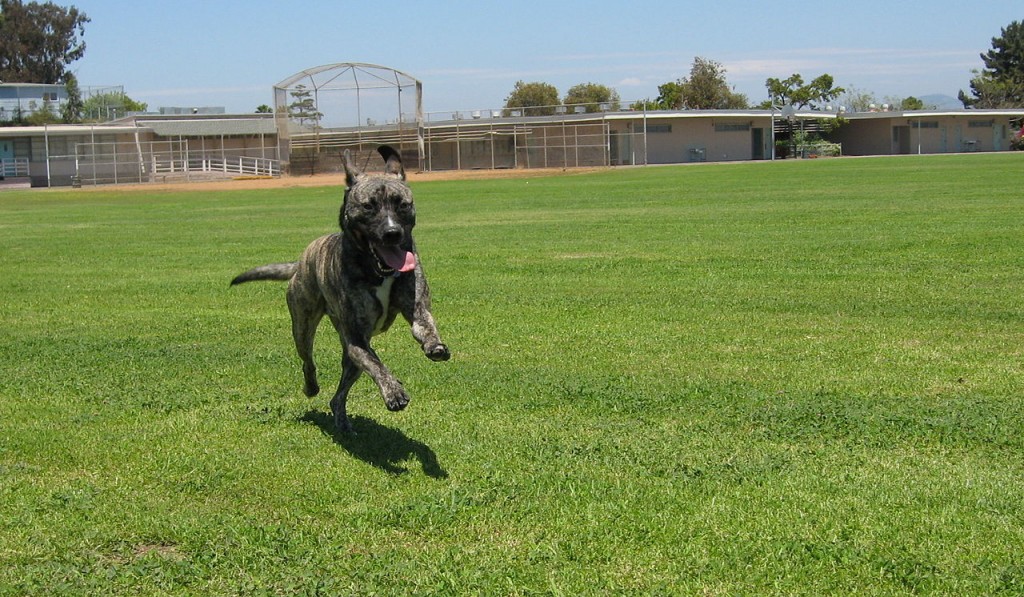The sun appears, the flowers come out, and people start sneezing! But dogs can also suffer from seasonal allergies which often begin to affect them in the spring.
Allergy to pollen in dogs (unlike people) usually causes itching. Dogs can be allergic to grass pollens, plant pollens (especially from weeds and wildflowers), and tree pollens. It is thought that the allergens are absorbed through the skin causing the release of inflammatory mediators including histamine and prostaglandins. This leads to erythema (reddening of the skin) and pruritus (itching). Itchiness can be obvious, with scratching or chewing, but it can also be more subtle with face rubbing, foot licking, full anal glands, or ear irritation.
Pollen allergies usually develop in young adult dogs (1-3 years), but are occasionally diagnosed in puppies, or in much older dogs. The tendency to develop skin allergies is thought to be inherited, and several breeds (including West Highland White Terriers, French and English Bulldogs, and Golden Retrievers) may have a higher risk.
Pollen allergies can only be accurately diagnosed with intradermal skin testing, but this is only done by specialist centres and carries a risk of anaphylaxis. Blood tests provide an easier route to determining what pollens a pet is allergic to, but in many cases a diagnosis is made based on the history and clinical signs. It is important to rule out adverse food reactions (usually done by feeding a hydrolysed diet for 2-4 weeks) and parasite infestations (through skin scrapings and using broad spectrum parasite treatments).
Mild pollen allergies can sometimes be managed by using an essential fatty acid supplement. Those sold for dogs may also contain Zinc and Vitamin E which support healthy skin and coat. Antihistamines may be prescribed by your vet but are less effective for skin allergies in dogs than in humans and are rarely effective on their own.
Many dogs with pollen allergies will require other drugs to control their symptoms. Glucocorticoids (steroids) can be very effective in an anti-inflammatory dose and are inexpensive. They can have side-effects when given long term or at higher doses, but giving on alternate days can reduce the risks. In recent years, other, more specific, immunosuppressing drugs have been licenced for allergies in dogs. Cyclosporine has fewer long-term side-effects but can cause stomach upsets to begin with. Oclacitinib was specifically designed for canine allergies and is generally effective and well tolerated with minimal side effects. Most recently, a monoclonal antibody injection was launched which promises great control of allergies with minimal side effects. Dogs can also receive individualised immunotherapy where they receive tiny doses of the pollens they are allergic to on a regular basis to desensitise them. This can be a particularly cost effective treatment for larger dogs.
Herbal medicines can be used to reduce the symptoms of pollen allergies but should be used only under the supervision of a vet who is trained in herbal medicine as some plant extracts can also cause allergic reactions. Homeopathy is often suggested as an alternative to conventional medicines for chronic diseases such as allergic skin disease. Many owners report benefits, but clinical studies are less convincing. As with herbal medicine, it is important to use remedies only prescribed by a trained vet.


